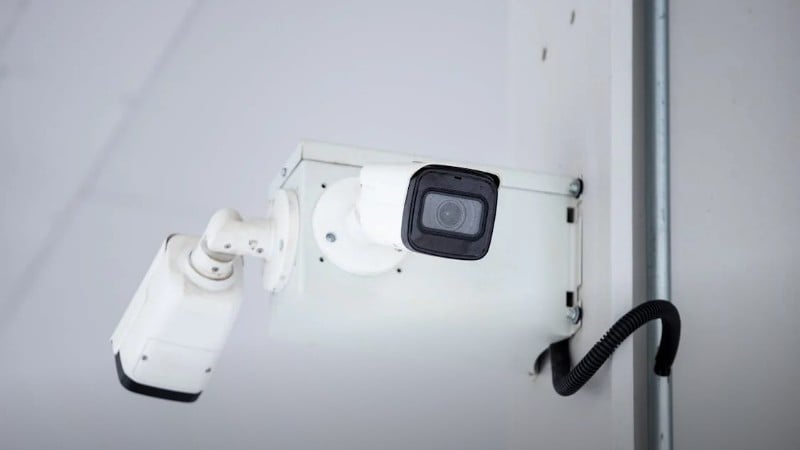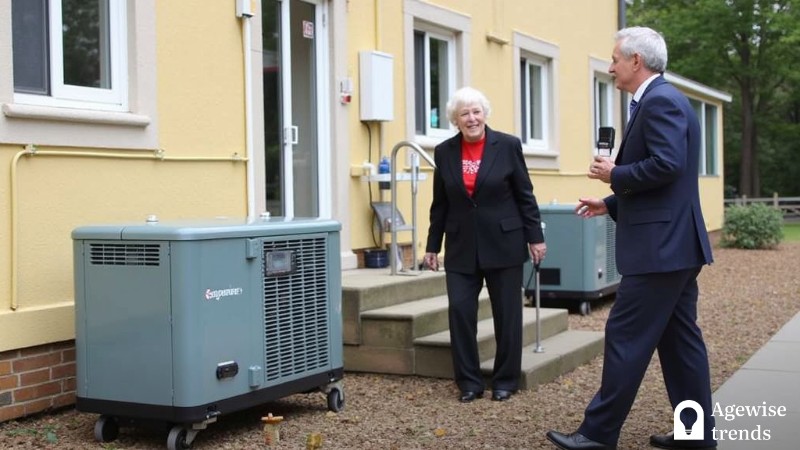Florida lawmakers have taken a significant step toward enhancing protections for senior residents in long-term care facilities by approving a proposal that would permit the use of surveillance cameras in nursing home rooms.
This measure, often referred to as the “granny cam” bill, aims to increase transparency, prevent abuse, and provide families with greater peace of mind regarding their loved ones’ well-being. However, the debate over privacy, consent, and the logistics of implementation continues to shape the conversation as the bill moves forward.
Key Takeaways
Florida lawmakers have approved a ‘granny cam’ bill to enhance protection for senior residents in nursing homes by allowing surveillance cameras with strict consent guidelines.
- The bill aims to prevent abuse, increase transparency, and provide peace of mind for families.
- It includes safeguards such as limited access to video recordings and restrictions on internet sharing.
- Supporters argue that the measure will improve accountability among caregivers and foster a safer environment.
Strengthening oversight in long-term care
The proposal, formally known as House Bill 223 (HB 223), is spearheaded by Representative Susan Plasencia from Orlando. The bill allows nursing home residents, or their legal representatives, to install electronic monitoring devices in their rooms, provided all necessary consents are obtained.
The move comes in response to growing concerns over elder abuse, neglect, and substandard care in some facilities, particularly for residents suffering from conditions like Alzheimer’s disease, who may be unable to advocate for themselves.
Supporters of the bill argue that these cameras could serve as an added layer of security, ensuring accountability among caregivers and deterring potential mistreatment. With Florida’s elderly population steadily increasing, the state has faced mounting pressure to address concerns about safety and quality of care in assisted living facilities.
Lawmakers see this measure as a proactive step toward ensuring seniors receive the dignity and protection they deserve.
Balancing protection and privacy
While the bill is largely supported by elder advocacy groups and many families of nursing home residents, it has also raised concerns about privacy and the potential for misuse of recorded footage. The Florida Health Care Association (FHCA), which represents many of the state’s long-term care providers, has voiced opposition, arguing that such surveillance could infringe on the privacy and dignity of residents.
Jennifer Lawrence, Chief Nursing Officer at Aston Health and an FHCA representative, highlighted the sensitive nature of daily life in nursing homes, emphasizing that private conversations and personal care routines could be compromised by constant monitoring.
To address these concerns, the bill incorporates strict consent and usage guidelines. Cameras may only be installed with the explicit consent of both the resident and any roommates they may have. Roommates who do not wish to be recorded retain the right to refuse consent or impose conditions on the device’s use.
Access to video recordings is limited to authorized individuals, such as the resident, their legal guardian, or law enforcement in the event of an investigation. The legislation explicitly prohibits making this video footage available on the internet to prevent exploitation or misuse. These safeguards attempt to strike a balance between enhancing security and upholding the fundamental right to privacy for all nursing home residents.
The growing national support
Several states have already enacted laws permitting some form of electronic surveillance in nursing homes and assisted living facilities, though regulations vary widely. These measures have gained traction as more families advocate for increased oversight in response to reports of mistreatment, neglect, or poor living conditions.
Lawmakers backing HB 223 claim that surveillance can lead to improved accountability among staff and a reduction in incidents of abuse. Proponents also argue that the presence of cameras may enhance caregiver training and reinforce adherence to ethical standards, ultimately fostering a safer environment for residents.
Beyond surveillance, the conversation surrounding the bill underscores broader concerns about staffing shortages and quality of care in nursing homes. With a significant portion of Florida’s senior population residing in long-term care facilities, the state continues to grapple with how to ensure high-quality services while navigating workforce challenges.
Some advocates believe that, in addition to permitting surveillance, more efforts should be made to address caregiver training, staffing ratios, and facility funding to create a more holistic approach to elder care reform.
Legislative hurdles and next steps
HB 223 recently cleared a key House panel and is now advancing through the legislative process. A companion bill, Senate Bill 64 (SB 64), introduced by Senator Ileana Garcia, mirrors HB 223’s provisions and is expected to gain further traction as the debate continues. If the measure is enacted, Florida would join the growing list of states that have embraced electronic monitoring as a tool for improving nursing home conditions.
While the bill enjoys bipartisan support, discussions remain ongoing regarding its long-term implications. Lawmakers, industry leaders, and elder advocacy groups continue to refine the legislation to ensure that residents’ rights and safety remain at the forefront. Public hearings and additional deliberations will provide stakeholders with opportunities to voice concerns and propose potential amendments before the bill becomes law.
The broader impact of this legislation extends beyond surveillance—it signals a shift toward leveraging technology to enhance elder care while addressing ethical and legal challenges. If HB 223 is enacted, it could serve as a model for other states considering similar protections, reinforcing the importance of accountability and safety in long-term care settings.















